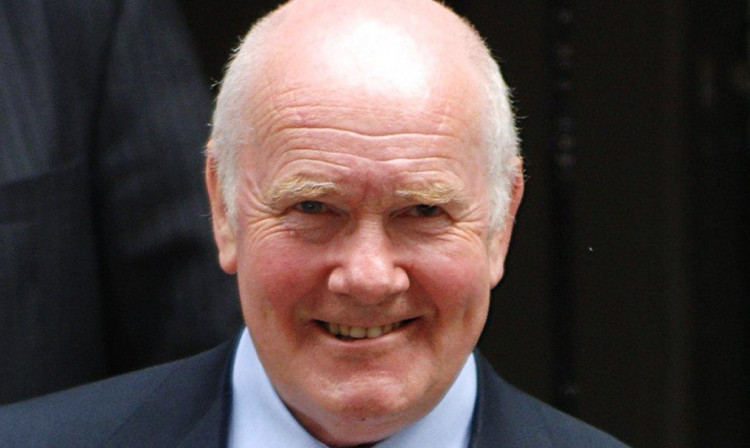John Reid has made his first mark on the No campaign by defending the patriotism of unionists.
The former Labour Defence Secretary used the D-Day commemorations to highlight the UK’s “long history of sacrifice and overcoming adversity together” and he said national pride is about acting in your country’s best interests.
“No one campaign has a monopoly on patriotism. The accusation that to vote ‘no’ is unpatriotic is insulting to the vast majority of the Scottish people,” he said.
As the images of frail veterans dominated all media outlets, Lord Reid made the case for the “argument of the heart the emotional dimensions” of being part of the UK and claimed that remembering the allied invasion would “come to bear” in the referendum.
There were several proud Scots among the 650 surviving British contingent making the pilgrimage to Normandy last week, including 89-year-old Jock Hutton, who repeated the parachute jump he made 70 years ago into occupied France.
Born in Stirling and now based in Kent, Hutton was a member of 13th Battalion the Parachute Regiment, part of the British 6th Airborne Division. “We were young,” he said, “and bursting to go.”
Soldiers from all over the country, standing shoulder to shoulder to defeat a common enemy, represent perhaps the most poignant of ties that bind Britain so closely.
“Men and women drawn from Scotland, England, Ireland and Wales,” said Lord Reid. “Ordinary men and women who did extraordinary things and did it together.”
They help explain why most of the war generation will be voting “no” on September 18. And they present the nationalists with many problems, not least a reminder that some leading separatists backed the wrong side in the Second World War.
Alex Salmond dutifully joined the ceremonies on Sword Beach last week and paid his tributes, but there is little political mileage in the world wars for him and he knows it.
That may be why the Yes camp rounded on Lord Reid, saying he was wrong to try to politicise the heroism of brave soldiers. But wars are about politics, as some of the SNP’s own politicians have been keen to point out.
It was Mr Salmond’s adviser Joan McAlpine, in fact, who used the First World War to vent her anti-British spleen, describing plans to honour the centenary of the start of the conflict as “jingoistic celebrations” and going on to belittle the 100,000 Scots who gave their lives “talk about misplaced loyalty”, she wrote in a newspaper column that enraged the nation.
Singling out Scotland, as Ms McAlpine did, as if its fate was different to the rest of Britain’s, was so out of tune with mainstream public sentiment that one wonders in whose name some nationalists speak certainly not all those who were moved by the sight of pensioners making their last trips across the Channel, or who will be moved again this summer.
On August 4, Britain’s entry into the Great War will be remembered and Scotland will be at the centre of the sombre services.
The Queen will reportedly be in Crathie Kirk on the Balmoral estate, while Charles attends a vigil in Glasgow Cathedral, the day after the city’s Commonwealth Games end.
Scotland, like the rest of the UK, will be wrapped in the Union Flag, as it was two years ago during the Queen’s diamond jubilee and the London Olympics, and there is likely to be an outpouring of patriotic spirit just over six weeks before Scots decide whether or not to leave Britain for good.
Last year, Mr Salmond unveiled a separate programme to mark significant First World War anniversaries, focusing on battles such as Loos in 1915 and Arras in 1917, which saw large numbers of Scottish losses.
If he wants these events to pass without incident he may have to muzzle those in his party who regard anything World War-related as an exercise in Westminster-driven British propaganda.
Judging from the interest in the Normandy reunions, people from all walks of life, and from across the political divide, will acknowledge the fallen of the First World War.
The nationalists must try to brace themselves for this unashamedly British occasion without resorting to abuse. Mr Salmond can probably manage that, but can his followers?
